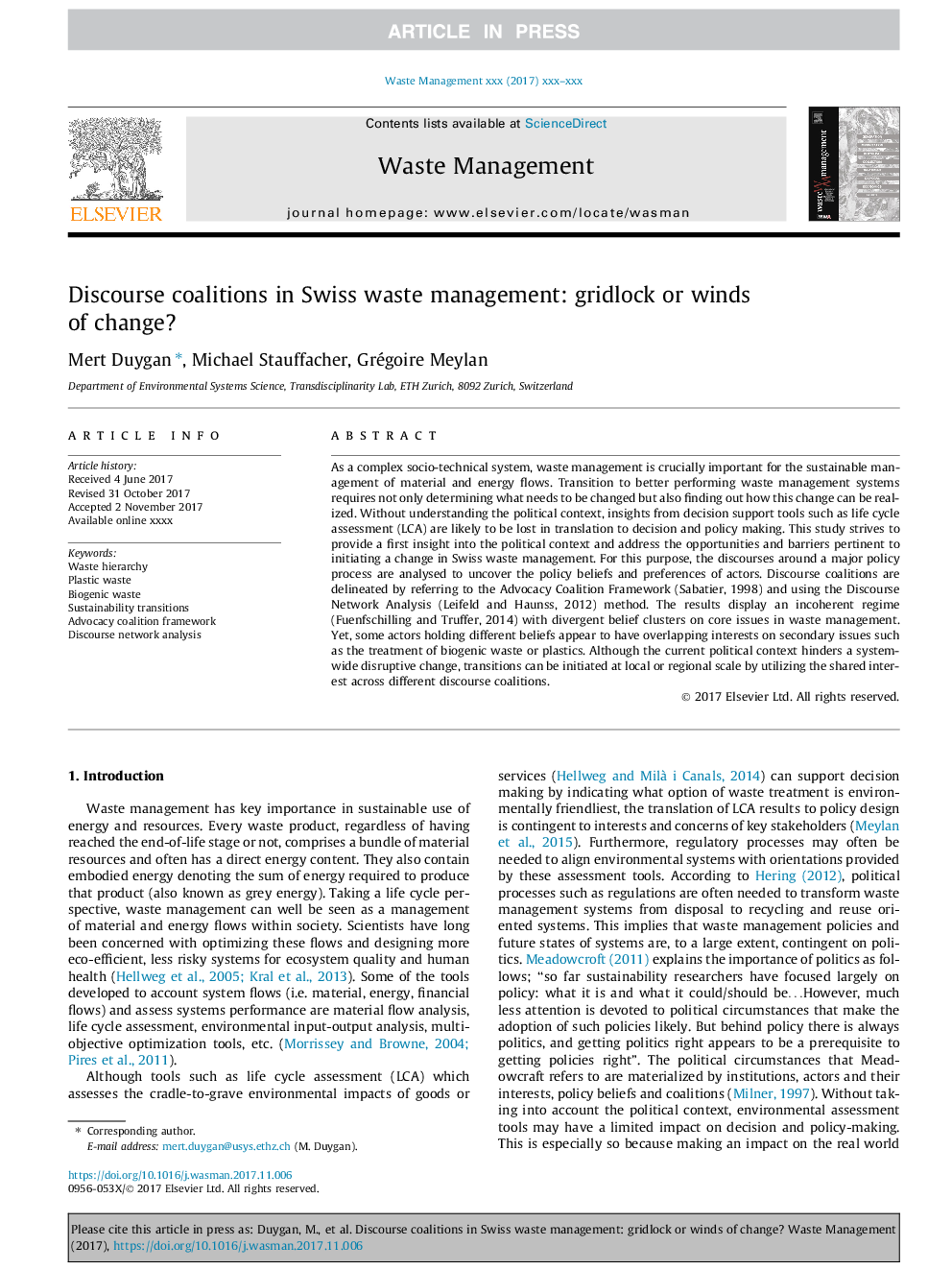ترجمه فارسی عنوان مقاله
ائتلاف گفتمان در مدیریت مواد زائد سوئیس: خط فقر یا باد تغییر؟
عنوان انگلیسی
Discourse coalitions in Swiss waste management: gridlock or winds of change?
| کد مقاله | سال انتشار | تعداد صفحات مقاله انگلیسی |
|---|---|---|
| 136670 | 2018 | 20 صفحه PDF |
منبع

Publisher : Elsevier - Science Direct (الزویر - ساینس دایرکت)
Journal : Waste Management, Volume 72, February 2018, Pages 25-44
ترجمه کلمات کلیدی
سلسله مراتب زباله، زباله های پلاستیکی، زباله های زیستی، انتقال پایدار، چارچوب ائتلاف طرفدار تجزیه و تحلیل شبکه گفتمان،
کلمات کلیدی انگلیسی
Waste hierarchy; Plastic waste; Biogenic waste; Sustainability transitions; Advocacy coalition framework; Discourse network analysis;

